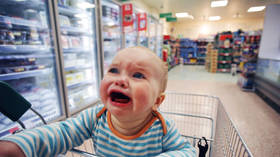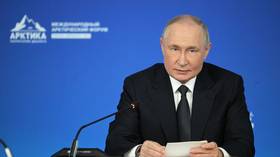Most EU residents have reduced spending on essentials – Bloomberg

Around 71% of EU consumers have changed their shopping habits to keep food on the table amid the cost-of-living crisis, Bloomberg reported on Monday, citing a survey by US-based market research firm IRI.
According to the report, “inflation fatigue” in the region has led to “coping behaviors” not seen since the 1970s and 1980s, such as skipping meals, cutting spending on food, buying out-of-date goods, or items at reduced prices.
Some 58% have been forced to cut down on essentials, and 35% have tapped personal savings or taken out loans to pay bills.
“It’s evident that consumers’ willingness to spend is suffering and the direction of travel is likely to worsen – with the likelihood of further sharp price rises given high input costs and volatile energy prices,” IRI Senior Vice President Ananda Roy said, commenting on the findings.
Over half of the respondents also revealed they planned to cut back on ordering food, while 47% said they would curtail their visits to restaurants, bars and cafes.
Roy suggested that because inflation is unlikely to abate in the near future, both consumers and retailers would have to adapt to the new realities.
“There are several difficult decisions for shoppers on the cards, and retailers and brands will do well to take a long and hard look at how they’re going to respond to shopper needs,” he stated.
Price growth in the EU jumped to a new record high of 10.9% year-on-year in September, the statistics agency Eurostat reported last week. The increase continues to be driven by food, fuel and energy costs. As a result, consumer confidence across the bloc remains close to a record low, having dropped for the fifth consecutive quarter in the third quarter of this year, according to Deloitte’s Consumer Tracker.
For more stories on economy & finance visit RT's business section













